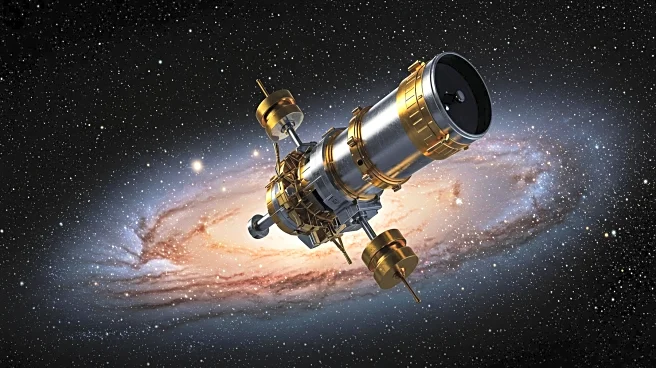What is the story about?
What's Happening?
The James Webb Space Telescope (JWST), developed by NASA with contributions from the European Space Agency and the Canadian Space Agency, has significantly impacted the field of astronomy. The UK Space Agency played a crucial role by contributing £25 million to the development and operation of JWST, particularly through the Mid-Infrared Instrument (MIRI). UK scientists led a consortium of ten European countries in developing MIRI, which focuses on mid-infrared wavelengths. This effort has strengthened the UK's reputation as a key partner in space science missions, with UK institutions making technological advancements in imagery systems, insulation, cryocooling, and data processing tools.
Why It's Important?
The involvement of UK scientists in the JWST project has reinvigorated stalled fields in astronomy, providing transformational data that has revolutionized the field. The UK has been highly successful in securing telescope observing time, second only to the US, which underscores the country's strong position in international space science. However, concerns remain about funding for UK researchers to exploit successful proposals, highlighting the need for more support from UK Research & Innovation and the Science and Technology Facilities Council. The JWST project also plays a role in inspiring public engagement with space and addressing the STEM agenda.
What's Next?
The UK Space Agency is encouraged to engage more proactively with downstream funding counterparts to ensure UK researchers can fully capitalize on their involvement with JWST. This includes addressing funding challenges to exploit successful proposals and continuing public engagement efforts to inspire future generations. The agency could leverage existing expertise and strategic priorities to influence international space spending further.
Beyond the Headlines
The JWST project highlights the importance of international collaboration in space science, demonstrating how strategic investments and partnerships can lead to significant scientific advancements. The UK's role in the project exemplifies how smaller contributions can lead to substantial impacts, fostering innovation and strengthening global scientific networks.















